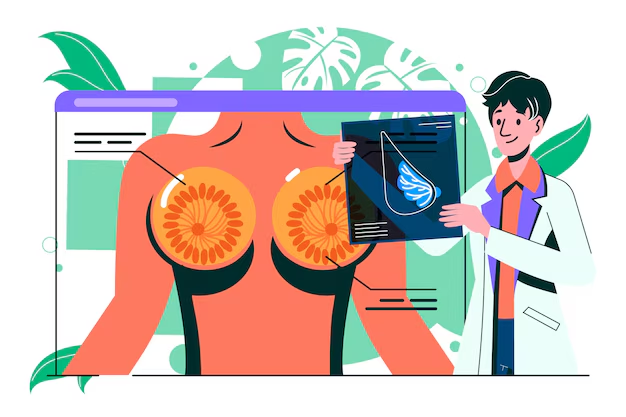Having varicose veins isn’t a death sentence or an introduction to a life of pain. However, it can cause a lot of discomfort and pain and stop you from wearing your favorite shorts or skirts, and it can be solved with a simple healthy lifestyle practice.
You would have heard that varicose veins cause sores, blood clots, and skin ulcers. Yes, it does, but this shouldn’t make you afraid. You just need a disciplined, healthy life to scale through it.
Varicose veins don’t just develop in a person’s life; certain factors cause it. You must know the causative factors of varicose veins; this will help you prevent it more.
What Causes Varicose Veins in Humans
Varicose veins result when the tiny valves inside your veins stop functioning. Here, the malfunctioning of the small veins allows the blood to flow backward, causing it to be enlarged and swollen. In a normal vein, blood doesn’t flow backward, as tiny valves inside the body open and close to let the blood pass through them.
The factors that cause or can increase your chance of having varicose veins include:
- Being obese or overweight
- Family history: having a family member with varicose veins
- Being a female
- Old age
- Pregnancy
- Staying in a job that demands you sit or stand for long hours
- Cases of previous blood clots
8 Health Tips for Varicose Veins
There are certain health tips for varicose veins which can help ease the pain of the condition and might prevent them from getting worse. These tips can also help you prevent getting varicose veins.
1. Eat a healthier diet
A fiber-rich diet is one of the best health tips to fight varicose veins. You must start eating food such as apples, oats, berries, barley, carrots, and flaxseed.
Fiber foods are good for maintaining healthy diets. While on this diet, please avoid fried food, salt and sodium intake, added sugars, alcoholic beverages, and refined carbohydrates.
A diet rich in fiber can prevent constipation, which can contribute to varicose veins by increasing pressure in your abdomen and on your leg veins.
Please, if it is possible, add ginger to your diet regularly. Ginger is filled with medicinal properties that increase blood circulation and dissolve fibrin in blood vessels. It has been used to treat varicose veins and is still very effective to date.
2. Exercise always
Investing in exercising your leg muscles will go a long way in promoting the health of your veins and preventing varicose veins from appearing.
Your leg muscles help your veins push the right amount of blood to your heart, so you must prioritize exercising your leg muscles.
3. Lose weight
One of the causative factors of varicose veins is overweight or obesity. When you are overweight or obese, you place a lot of stress on your legs.
So losing weight will prevent varicose veins from forming; if you already have, it will speed up the recovery process.
Losing weight is known to proffer many benefits apart from preventing varicose veins. Some of the benefits of losing weight include preventing:
- Hypertension
- Risk of cardiovascular diseases
- Risk of stroke
- Type 2 diabetes, and so many more.
4. Get a compression hose
A compression hose helps to add pressure on the lower leg and ankle, which maintains your blood flow, aids your blood in moving back towards your heart, and reduces discomfort and swelling.
You can get one from the boutique or cloth store or ask your doctor to prescribe a strength compression hose.
5. Avoid sitting or standing for long
Conventional modern workers are at greater risk of varicose veins because most contemporary work demands you sit for long and face the computer.
It is advised that after sitting for a while, you stand up and walk around for about half an hour before returning to work.
As you walk around, your leg muscles are forced to move more blood toward your heart. If your work demands standing for long, ensure you take some time off, sit down, and relax your legs.
6. Avoid salty foods
It is imperative that you avoid salty foods when you have varicose veins. The sodium in salt causes the body to retain water, which increases the blood volume and raises the blood pressure. When all this happens, it puts pressure on the venous system.
A diet low in sodium is recommended for the venous system. Therefore, you should avoid foods with high sodium content often, such as canned foods, deli meats, bacon, sausages, and packaged seasoned meats.
Also, sugar-laced foods, alcoholic beverages, processed foods, and refined carbohydrates are among the foods you should not eat when you suffer from varicose veins.
7. Avoid wearing tight clothes or shoes
Wearing tight clothes can reduce blood circulation in the body and make things uncomfortable if you have varicose veins.
When you put on tight clothing or shoes, it leaves your blood stagnant and can worsen the pain of varicose veins. Hence, it is advised that you wear loose-fitting outfits if you have varicose veins.
Furthermore, you must avoid wearing high heels. Low-heeled shoes work your calf muscles more, which is better for your veins. They help the blood move through your veins.
8. Use compression socks
Medical experts recommend wearing compression socks if you have varicose veins.
The reason is that wearing compression stockings or socks puts pressure on the veins of the lower legs.
This pressure improves blood flow and prevents the increase of further varicose veins. Furthermore, using compression stockings relieves leg swelling and reduces the risk of blood clots in the legs.
Varicose veins can be prevented or managed if you apply these health tips for varicose veins. You don’t have to wait to develop one before becoming cautious of your leg health. In extreme cases, ensure you consult the doctor.





















Discussion about this post